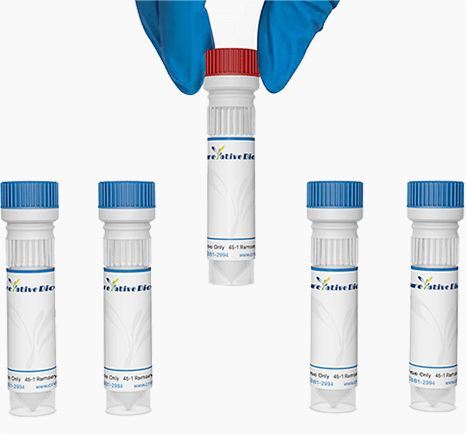Key Details
| Catalog | MAS-0124-YJ11 |
| Applications | ELISA; Inhib |
| Host | Mouse |
| Reactivity | Anopheles |
| Clonality | Monoclonal |
| Conjugations | Conjugation could be customized |
| Sub CAT. | Applications | Clone | Conjugations | Endotoxin Level | Size | Quantity | |
|---|---|---|---|---|---|---|---|
| MAS-0124-YJ11-A | ELISA, Pull Down, Inhib | 7G61 |
Successfully!
|
Overview
Properties
Target
Overview
| Description | Clone 7G61 is a Mouse monoclonal IgG recognizes Anopheles anopheline antiplatelet protein (AAPP). It can inhibit collagen binding of AAPP. |
| Reactivity | Anopheles |
| Applications | ELISA; Inhib |
| Host | Mouse |
| Immunogen | AAPP exon 3-4 |
| Isotype | Mouse IgG2a |
| Clonality | Monoclonal |
| Clone | 7G61 |
| Dilutions | ELISA: 0.1-1000 ng/mL |
Properties
| Expression Host | HEK293F/CHO |
| Conjugations | Conjugation could be customized |
| Purification | Protein A/G affinity purified is the regular method |
| Purity | SDS-PAGE> 95% |
| Endotoxin Level | Endotoxin level could be customized |
| Form | Liquid (frequently-used) or lyophilized |
| Concentration | About 1mg/ml. There are differences between batches. Special concentration could be customized. |
| Sterility | 0.2 μM filtered |
| Buffer | See the Datasheet |
| Storage | See the Datasheet |
Target
| Target | Anopheles AAPP |
| Alternative Names | Anopheline anti-platelet protein |
| Introduction | This protein, anopheline anti-platelet protein (AAPP), is found to bind directly to type-I and type-III collagen and blocks platelet adhesion with an IC50 of ∼30 nm. Collagen is only exposed to circulating plasma proteins at sites of damage to blood vessels. It causes platelets to aggregate through the action of the plasma protein von Willebrand factor, which initiates platelet tethering and blood clotting at sites of vascular injury. Activated platelets subsequently adhere directly to subendothelial collagen through glycoprotein 1b so that blocking exposed collagen prevents the initiation and progression of platelet aggregation. |
| Organism | Parasite |
| Related Disease | Acanthamoeba infection |
| Infections Route | Blood |
Online Inquiry
